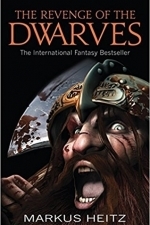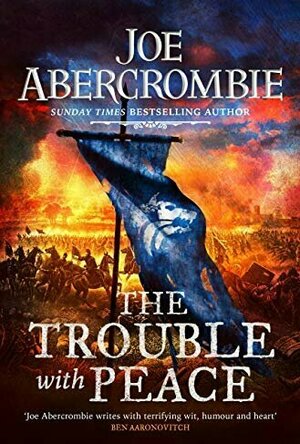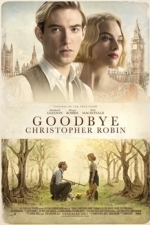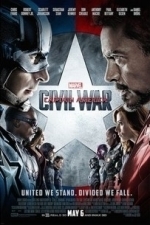Search
Search results
Ross (3284 KP) rated The Revenge of the Dwarves in Books
Mar 19, 2018
Too epic for its own good
I loved the first Dwarves book: the world-building, the adventure, the characters and the interactions were all superb. The story, while being far from original, was very enjoyable and engaging. In the follow-up, War of the Dwarves, cracks started to appear, showing such an ambitious storyline was just too big for one book, with Heitz being prone to focus on every intimate detail of a scene (while being enjoyable it does take the attention away from the overall story somewhat), meaning some important events/hints are glossed over.
This trend continues here, where the scope just seems to be a bit too big and squeezed in. We don't really have any sight of a large-scale assault from the orcs and trolls on the defences of the land, these are mentioned briefly as backstory, while the focus is on Rodario the actor trying to find his friend, while getting his end away left, right and centre. The dwarves play less of a key role for large parts of the book, as so much is needed from Rodario/Furgas' storlyline that we leave the dwarves entirely for large sections of the book.
The translation of this third book also seems lower quality than before, where some parts seem to be google-translated and don't really scan all that well in English. Compared to how well this was carried out on the first book, this is something of a let-down.
Overall, the story itself is strong (the 13 diamonds, one of which contains a massive store of magic, scattered throughout the kingdoms start to be stolen by strange creatures/machines) but the narrative tends to wander a little looking for humour where there really is no need for any (or the payoff is never worth it).
With only 2 books to go, I think the gap between them is going to grow as I find myself less keen to dive straight into the next one, and I haven't bought the 4th one yet (though I have the 5th from Netgalley to review!). And whether I will then read the Alfar prequels after that remains to be seen (though they are sitting on my kindle).
This trend continues here, where the scope just seems to be a bit too big and squeezed in. We don't really have any sight of a large-scale assault from the orcs and trolls on the defences of the land, these are mentioned briefly as backstory, while the focus is on Rodario the actor trying to find his friend, while getting his end away left, right and centre. The dwarves play less of a key role for large parts of the book, as so much is needed from Rodario/Furgas' storlyline that we leave the dwarves entirely for large sections of the book.
The translation of this third book also seems lower quality than before, where some parts seem to be google-translated and don't really scan all that well in English. Compared to how well this was carried out on the first book, this is something of a let-down.
Overall, the story itself is strong (the 13 diamonds, one of which contains a massive store of magic, scattered throughout the kingdoms start to be stolen by strange creatures/machines) but the narrative tends to wander a little looking for humour where there really is no need for any (or the payoff is never worth it).
With only 2 books to go, I think the gap between them is going to grow as I find myself less keen to dive straight into the next one, and I haven't bought the 4th one yet (though I have the 5th from Netgalley to review!). And whether I will then read the Alfar prequels after that remains to be seen (though they are sitting on my kindle).
Ross (3284 KP) rated The Trouble With Peace in Books
Sep 28, 2020
Superb dialogue, plotting and war
I received an advance copy of this book from netgalley and the publishers in exchange for an honest review.
This is the second book in Abercrombie's second proper trilogy in the world of The First Law. I will admit to having issues with the first book, A Little Hatred, but they were mainly a result of the book building on from the previous trilogy (and the standalone books) but being a significant amount of time later. I had felt the characters had been left as "so-and-so's son/daughter" with minimal introduction otherwise.
Those issues are now long-forgotten, as in this book all characters receive enough attention to embed themselves and find their voices (no longer are Vick and Savine the same in my head, likewise Leo and Orso, although I have to admit that Clover and Broad still cross over in my mind).
The plot follows some gentle political and social manipulations, both in the capital Adua, and also in the North. Things quickly develop into a much stronger and very possible uprising against the throne, and more importantly against the corrupt financier and magician controlling the throne.
There are some truly superb action sequences in this book, where the action flows seamlessly from one character's PoV to another, almost as if watching a film, where the camera follows an arrow and watches the intended target until they stab at someone, who the camera then follows. This allows the action to unfold across both sides of the conflict and give the story from multiple angles. One of these scenes was one of the best told battle scenes I think I have ever read.
The plot is strong, the characters similarly, and the dialogue and narration is Abercrombie at his best. The crossing, double-crossing and triple-crossing is a joy to read. It is rare in a "grimdark" book to see one of the nastiest characters getting their comeuppance but at the end this is delivered in a fairly shocking manner.
This may just be Abercrombie's best book yet, in my humble opinion.
This is the second book in Abercrombie's second proper trilogy in the world of The First Law. I will admit to having issues with the first book, A Little Hatred, but they were mainly a result of the book building on from the previous trilogy (and the standalone books) but being a significant amount of time later. I had felt the characters had been left as "so-and-so's son/daughter" with minimal introduction otherwise.
Those issues are now long-forgotten, as in this book all characters receive enough attention to embed themselves and find their voices (no longer are Vick and Savine the same in my head, likewise Leo and Orso, although I have to admit that Clover and Broad still cross over in my mind).
The plot follows some gentle political and social manipulations, both in the capital Adua, and also in the North. Things quickly develop into a much stronger and very possible uprising against the throne, and more importantly against the corrupt financier and magician controlling the throne.
There are some truly superb action sequences in this book, where the action flows seamlessly from one character's PoV to another, almost as if watching a film, where the camera follows an arrow and watches the intended target until they stab at someone, who the camera then follows. This allows the action to unfold across both sides of the conflict and give the story from multiple angles. One of these scenes was one of the best told battle scenes I think I have ever read.
The plot is strong, the characters similarly, and the dialogue and narration is Abercrombie at his best. The crossing, double-crossing and triple-crossing is a joy to read. It is rare in a "grimdark" book to see one of the nastiest characters getting their comeuppance but at the end this is delivered in a fairly shocking manner.
This may just be Abercrombie's best book yet, in my humble opinion.
KatieLouCreate (162 KP) rated Empire of the Vampire in Books
Jul 10, 2023
Empire of the Vampire
This book is not for the feint hearted. Not only is it decidedly grotesque and gruesome, but its also a monster of a book, coming in at 725 pages with another book on the way.
It has been twenty-seven long years since the last sunrise. For nearly three decades, vampires have waged war against humanity; building their eternal empire even as they tear down our own.
Gabriel de León is a silversaint: a member of a holy brotherhood dedicated to defending realm and church from the creatures of the night. But even the Silver Order couldn’t stem the tide once daylight failed us, and now, only Gabriel remains.
Imprisoned by the very monsters he vowed to destroy, the last silversaint is forced to tell his story. A story of legendary battles and forbidden love, of faith lost and friendships won, of the Wars of the Blood and the Forever King and the quest for humanity’s last remaining hope:
The Holy Grail.
The book is dark and gruesome, but also delightfully entertaining. Kristoff puts an original spin on the vampire world and created a deep, well-rounded character with the biggest chip on his shoulder. All the characters are well-developed, to be honest.
The humour, as expected, is dark. Which is what makes it so great. I found myself laughing out loud in parts. I loved the witty banter and insults from the characters.
My woe with this book was, though I enjoyed it, it did feel like I was reading a 725 page book. Sometimes the time flew, and others I found myself counting the pages wondering how much longer this was going to go on for. I think the story could have been shorter without losing anything vital.
Read if you like:
Adult fantasy
Legendary battles
Blood and gore/violence
Religious occult
Dark humour
Don't read if:
You are a child
And dont like:
Prolific swearing
Sexual Content
Violence
Religious Themes
Trigger warnings:
Anything mentioned above
Drug addiction
Child abuse
Homophobia
It reminds me of Interview With a Vampire meets Van Helsing...
It has been twenty-seven long years since the last sunrise. For nearly three decades, vampires have waged war against humanity; building their eternal empire even as they tear down our own.
Gabriel de León is a silversaint: a member of a holy brotherhood dedicated to defending realm and church from the creatures of the night. But even the Silver Order couldn’t stem the tide once daylight failed us, and now, only Gabriel remains.
Imprisoned by the very monsters he vowed to destroy, the last silversaint is forced to tell his story. A story of legendary battles and forbidden love, of faith lost and friendships won, of the Wars of the Blood and the Forever King and the quest for humanity’s last remaining hope:
The Holy Grail.
The book is dark and gruesome, but also delightfully entertaining. Kristoff puts an original spin on the vampire world and created a deep, well-rounded character with the biggest chip on his shoulder. All the characters are well-developed, to be honest.
The humour, as expected, is dark. Which is what makes it so great. I found myself laughing out loud in parts. I loved the witty banter and insults from the characters.
My woe with this book was, though I enjoyed it, it did feel like I was reading a 725 page book. Sometimes the time flew, and others I found myself counting the pages wondering how much longer this was going to go on for. I think the story could have been shorter without losing anything vital.
Read if you like:
Adult fantasy
Legendary battles
Blood and gore/violence
Religious occult
Dark humour
Don't read if:
You are a child
And dont like:
Prolific swearing
Sexual Content
Violence
Religious Themes
Trigger warnings:
Anything mentioned above
Drug addiction
Child abuse
Homophobia
It reminds me of Interview With a Vampire meets Van Helsing...
Lee (2222 KP) rated Goodbye Christopher Robin (2017) in Movies
Oct 2, 2017
My wife has the entire collection of Winnie the Pooh stories by A.A. Milne, featuring the illustrations by E.H. Shepherd, but they're not something I've ever actually read. I'm probably more familiar with the illustrations than the stories themselves and the fact that Christopher Robin was real, along with the stuffed toys that eventually became the characters and friends we all know and love. But I had no idea that the real Christopher Robin actually grew to hate being Christopher Robin and how much of a negative impact his fathers work had on his early years. Goodbye Christopher Robin tells us that story.
We begin with a brief scene of despair following the receipt of a telegram at the Milne home in 1941. Before we have time to fully understand what's going on, we're whisked back to World War I where A.A. Milne (Domhnall Gleeson) is fighting in the trenches. Following the war, Milne (or "Blue" to his friends) tries to live out a normal life in London, working as a writer with wife Daphne (Margot Robbie) and their young son Christopher Robin. Unfortunately though, Milne suffers from post-traumatic stress disorder, meaning that the bright lights and loud noises of London regularly take him back to the horrors of World War I and begin to effect his life and his work. Deciding to move his family to a farmhouse in Sussex, Milne hopes that the peace and quiet of the countryside will allow him to concentrate on getting back into his writing.
As he struggles to write the book he wants to write, Daphne heads back to London, promising only to return when he begins writing again. At the same time, beloved nanny Olive (Kelly Macdonald) takes time off to look after her mother, meaning that Milne must finally spend some time with Christopher Robin, getting to know his son and enjoying time together in the large woods surrounding their home. It's a slow process though, with the occasional PTSD trigger affecting the already strained father-son relationship, but they soon begin fleshing out stories, characters and habitats for what will become Winnie the Pooh and friends. When Milne invites his friend E.H. Shepherd down to start sketching the woodland and Christopher Robin at play, things really begin to take shape and it's not long before Milne has published his Winnie the Pooh stories. And they're an instant hit.
To the disappoint of A.A. Milne, much of the books attention is focused towards Christopher Robin who is immediately thrust into the limelight. Forced to endure endless photo-shoots and interviews, participating in a tea party with children who have won a competition and being constantly hounded by the press. His parents revel in the success thought, not really acknowledging the effect it's all having on their young son while they swan off to parties and holidays leaving the nanny to look after Christopher Robin and his increasingly busy schedule. Even a telephone call home from Milne to Christopher Robin to see how he is turns out to be part of a radio broadcast. He feels his life isn't his own anymore, and that Christopher Robin is just a character in a book. Even when he heads off to boarding school, he cannot escape the curse of Christopher Robin and is constantly bullied because of it.
It's thanks to the amazing cast, particularly Gleeson and newcomer Will Tilston, that all of this works so well. Building to a highly emotional ending (yeah, I cried!), Goodbye Christopher Robin is a wonderfully touching story. Emotional and hugely enjoyable.
We begin with a brief scene of despair following the receipt of a telegram at the Milne home in 1941. Before we have time to fully understand what's going on, we're whisked back to World War I where A.A. Milne (Domhnall Gleeson) is fighting in the trenches. Following the war, Milne (or "Blue" to his friends) tries to live out a normal life in London, working as a writer with wife Daphne (Margot Robbie) and their young son Christopher Robin. Unfortunately though, Milne suffers from post-traumatic stress disorder, meaning that the bright lights and loud noises of London regularly take him back to the horrors of World War I and begin to effect his life and his work. Deciding to move his family to a farmhouse in Sussex, Milne hopes that the peace and quiet of the countryside will allow him to concentrate on getting back into his writing.
As he struggles to write the book he wants to write, Daphne heads back to London, promising only to return when he begins writing again. At the same time, beloved nanny Olive (Kelly Macdonald) takes time off to look after her mother, meaning that Milne must finally spend some time with Christopher Robin, getting to know his son and enjoying time together in the large woods surrounding their home. It's a slow process though, with the occasional PTSD trigger affecting the already strained father-son relationship, but they soon begin fleshing out stories, characters and habitats for what will become Winnie the Pooh and friends. When Milne invites his friend E.H. Shepherd down to start sketching the woodland and Christopher Robin at play, things really begin to take shape and it's not long before Milne has published his Winnie the Pooh stories. And they're an instant hit.
To the disappoint of A.A. Milne, much of the books attention is focused towards Christopher Robin who is immediately thrust into the limelight. Forced to endure endless photo-shoots and interviews, participating in a tea party with children who have won a competition and being constantly hounded by the press. His parents revel in the success thought, not really acknowledging the effect it's all having on their young son while they swan off to parties and holidays leaving the nanny to look after Christopher Robin and his increasingly busy schedule. Even a telephone call home from Milne to Christopher Robin to see how he is turns out to be part of a radio broadcast. He feels his life isn't his own anymore, and that Christopher Robin is just a character in a book. Even when he heads off to boarding school, he cannot escape the curse of Christopher Robin and is constantly bullied because of it.
It's thanks to the amazing cast, particularly Gleeson and newcomer Will Tilston, that all of this works so well. Building to a highly emotional ending (yeah, I cried!), Goodbye Christopher Robin is a wonderfully touching story. Emotional and hugely enjoyable.
BookwormMama14 (18 KP) rated For Such a Time in Books
Jan 2, 2019
In a place where hope struggles to survive and lives are torn apart, Hadassah Benjamin will do whatever it takes to save her people.
"And who knows but that you have come to your royal position for such a time as this?"
Hadassah is hiding in plain sight as Stella Muller, secretary to SS Kommandant Colonel Aric von Schmidt at Theresienstadt. In 1944 the camp is a stopping point from which many are sent to Auschwitz. As she puts her life on the line to try and save her people she suspects that the Colonel has a tender heart despite his role as an SS officer. As their relationship grows, they will have to face their drastic differences. With this unconventional love Hadassah struggles to find the meaning behind it all. She does not understand how God could abandon His people to slaughter. But has the Lord brought them together for a bigger plan? Will Stella be able to save her people as well as the man she has grown to love?
A book written about the atrocities of the Holocaust is never easy to read. It is full of emotion and the history is tragic. Kate Breslin did not soften the details of the horrors of the second World War, even though this is a romance. However, she did give us a new perspective of love during the war. I was drawn in by the intriguing story line. I had never imagined a romance like this. However, there are true stories of similar relationships taking place: Edith Hahn Beer and Helena Citronova. Although Stella and Aric's story is different, it is a wonderful book. In every page you can feel the battle raging within Stella as she falls deeper in love with Aric. There were many times that I found myself grinning from ear to ear while reading one page and crying on the next. Be prepared for a wealth of emotion to overcome you as you read this book, but it is worth it! For Such a Time is a truly remarkable story of redemption through faith. We are reminded that God's love for us never fails and His forgiveness is never out of reach.
"And who knows but that you have come to your royal position for such a time as this?"
Hadassah is hiding in plain sight as Stella Muller, secretary to SS Kommandant Colonel Aric von Schmidt at Theresienstadt. In 1944 the camp is a stopping point from which many are sent to Auschwitz. As she puts her life on the line to try and save her people she suspects that the Colonel has a tender heart despite his role as an SS officer. As their relationship grows, they will have to face their drastic differences. With this unconventional love Hadassah struggles to find the meaning behind it all. She does not understand how God could abandon His people to slaughter. But has the Lord brought them together for a bigger plan? Will Stella be able to save her people as well as the man she has grown to love?
A book written about the atrocities of the Holocaust is never easy to read. It is full of emotion and the history is tragic. Kate Breslin did not soften the details of the horrors of the second World War, even though this is a romance. However, she did give us a new perspective of love during the war. I was drawn in by the intriguing story line. I had never imagined a romance like this. However, there are true stories of similar relationships taking place: Edith Hahn Beer and Helena Citronova. Although Stella and Aric's story is different, it is a wonderful book. In every page you can feel the battle raging within Stella as she falls deeper in love with Aric. There were many times that I found myself grinning from ear to ear while reading one page and crying on the next. Be prepared for a wealth of emotion to overcome you as you read this book, but it is worth it! For Such a Time is a truly remarkable story of redemption through faith. We are reminded that God's love for us never fails and His forgiveness is never out of reach.
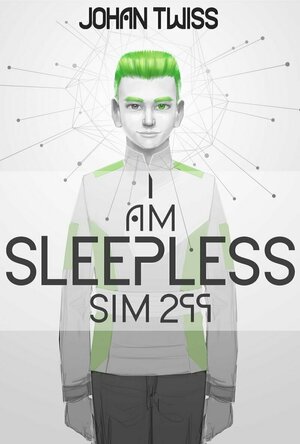
Sim 299 (I Am Sleepless #1)
Book
The planet Ethos is at war with a savage enemy known as the Splicers. Their only successful defense...
Young Adult Science Fiction Dystopian Mystery
Movie Metropolis (309 KP) rated Captain America: Civil War (2016) in Movies
Jun 10, 2019
Mini Avengers, Assemble
Is anyone else getting bored of superhero films? Nope? Just me then. We’re not even halfway through 2016 and there have been three of them. In February, there was Deadpool, a film that despite all the odds, turned out to be smashing – despite its generic finale.
Then, DC tried to compete with Marvel in March with Batman v Superman: Dawn of Justice. It was fine, if far too long and lacking in any real drama. Now, Marvel is back with Captain America: Civil War. But can it break the superhero tedium that has started to settle in?
Steve Rogers (Chris Evans) is back and he is not happy. The titular hero, and the rest of our beloved Avengers clan, are asked to sign up to a UN treaty, designed to reign in their unsupervised power after a dramatic and deadly battle against terrorists in Nigeria. It turns out the Avengers lost the PR war and countries across the globe want blood – well them to back off a little at least.
Most of the fan favourites return in Civil War, with Robert Downey Jr proving once again why he was cast as Tony Stark/Iron Man all those years ago. He is a commanding presence and brings to the table some of the best one-liners outside a fully-fledged Iron Man film.
Elsewhere, Scarlett Johansson (Black Widow), Jeremy Renner (Hawkeye), Elizabeth Olsen (Scarlet Witch) and Paul Bettany (Vision) all return and despite the increasing number of characters all make their presence felt throughout the course of the film – something Avengers: Age of Ultron failed to do.
However, the film belongs to the characters that join the film and the Marvel Universe. Paul Rudd’s Ant-Man makes a truly exceptional appearance and features in Civil War’s most memorable scene – a brilliantly choreographed battle between two sides in a deserted airport.
And, the long-awaited “homecoming” of Spider-Man to the MCU is thankfully worth the wait. He’s been teased in the trailers and I’m pleased to say his screen-time is far greater than anyone could have imagined. Young Tom Holland’s portrayal of Peter Parker may need some time to settle in, we have a Spider-Man reboot to look forward to in 2018, but he makes a cracking first impression.
So, with all those characters it’s fair to say that Civil War should be renamed “Mini Avengers Assemble” as there’s far more at stake here than a simple Captain America movie. Directors Joe and Anthony Russo have created the film that Age of Ultron should have been and it’s a slight disservice to their incredible work that the film isn’t labelled as a full Avengers feature, despite the lack of Thor and Hulk.
The action is beautifully filmed and the locations are fabulous. From Africa to America and from Germany to London, nearly every inch of the world is touched upon in some way – yet it doesn’t feel disjointed.
But what makes Civil War stand out from all the rest is its human side. This isn’t a superhero movie that ends in a climactic battle against a faceless army, it explores the human impact of our characters’ actions and the emotion radiates from its heart.
Yes, it’s 20 minutes too long but apart from that, I can’t think of a bad word to say. It has reinvigorated a genre that was starting to turn a little stale. Bringing together a set of characters that against all the odds gel together so well makes it feel as fresh as Iron Man did way back in 2008.
If this is the magic the Russo brothers can work at Marvel, Avengers: Infinity War should be something truly special indeed. X-Men: Apocalypse, you have your work cut out.
Oh, and wait right up until the end credits for something very special indeed.
https://moviemetropolis.net/2016/05/01/mini-avengers-assemble-captain-america-civil-war-review/
Then, DC tried to compete with Marvel in March with Batman v Superman: Dawn of Justice. It was fine, if far too long and lacking in any real drama. Now, Marvel is back with Captain America: Civil War. But can it break the superhero tedium that has started to settle in?
Steve Rogers (Chris Evans) is back and he is not happy. The titular hero, and the rest of our beloved Avengers clan, are asked to sign up to a UN treaty, designed to reign in their unsupervised power after a dramatic and deadly battle against terrorists in Nigeria. It turns out the Avengers lost the PR war and countries across the globe want blood – well them to back off a little at least.
Most of the fan favourites return in Civil War, with Robert Downey Jr proving once again why he was cast as Tony Stark/Iron Man all those years ago. He is a commanding presence and brings to the table some of the best one-liners outside a fully-fledged Iron Man film.
Elsewhere, Scarlett Johansson (Black Widow), Jeremy Renner (Hawkeye), Elizabeth Olsen (Scarlet Witch) and Paul Bettany (Vision) all return and despite the increasing number of characters all make their presence felt throughout the course of the film – something Avengers: Age of Ultron failed to do.
However, the film belongs to the characters that join the film and the Marvel Universe. Paul Rudd’s Ant-Man makes a truly exceptional appearance and features in Civil War’s most memorable scene – a brilliantly choreographed battle between two sides in a deserted airport.
And, the long-awaited “homecoming” of Spider-Man to the MCU is thankfully worth the wait. He’s been teased in the trailers and I’m pleased to say his screen-time is far greater than anyone could have imagined. Young Tom Holland’s portrayal of Peter Parker may need some time to settle in, we have a Spider-Man reboot to look forward to in 2018, but he makes a cracking first impression.
So, with all those characters it’s fair to say that Civil War should be renamed “Mini Avengers Assemble” as there’s far more at stake here than a simple Captain America movie. Directors Joe and Anthony Russo have created the film that Age of Ultron should have been and it’s a slight disservice to their incredible work that the film isn’t labelled as a full Avengers feature, despite the lack of Thor and Hulk.
The action is beautifully filmed and the locations are fabulous. From Africa to America and from Germany to London, nearly every inch of the world is touched upon in some way – yet it doesn’t feel disjointed.
But what makes Civil War stand out from all the rest is its human side. This isn’t a superhero movie that ends in a climactic battle against a faceless army, it explores the human impact of our characters’ actions and the emotion radiates from its heart.
Yes, it’s 20 minutes too long but apart from that, I can’t think of a bad word to say. It has reinvigorated a genre that was starting to turn a little stale. Bringing together a set of characters that against all the odds gel together so well makes it feel as fresh as Iron Man did way back in 2008.
If this is the magic the Russo brothers can work at Marvel, Avengers: Infinity War should be something truly special indeed. X-Men: Apocalypse, you have your work cut out.
Oh, and wait right up until the end credits for something very special indeed.
https://moviemetropolis.net/2016/05/01/mini-avengers-assemble-captain-america-civil-war-review/
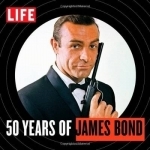
LIFE: 50 Years of James Bond: On the Run with 007, from Dr No to Skyfall
Book
The world will once more stream to the theatres for another dose of Bond. "LIFE" was on the scene in...
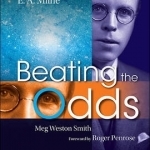
Beating the Odds: The Life and Times of E. A. Milne
Book
E A Milne was one of the giants of 20th century astrophysics and cosmology. His bold ideas,...
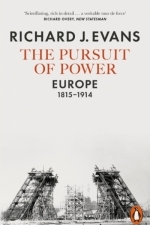
The Pursuit of Power: Europe 1815-1914
Book
A masterpiece which brings to life an extraordinarly turbulent and dramatic era of revolutionary...
History politics
